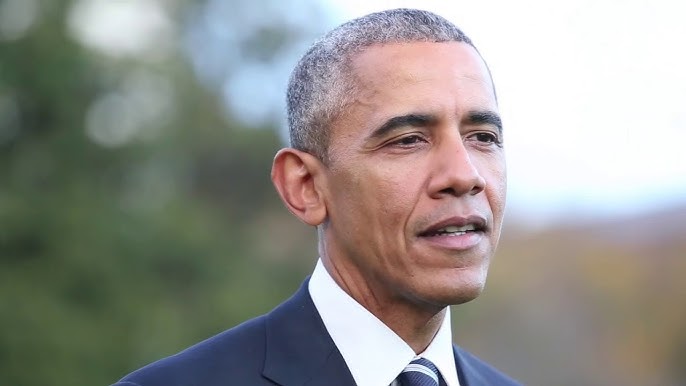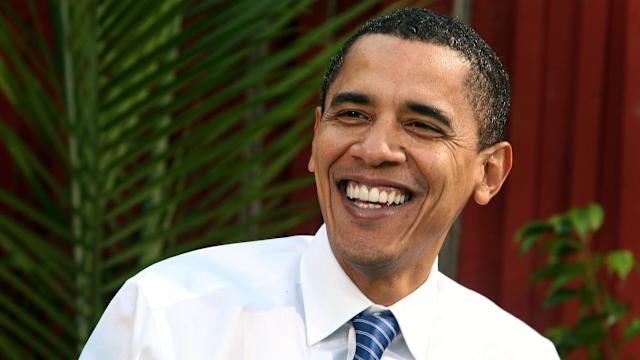Barack Obama’s words, “Yes, we can,”

Barack Obama’s words, “Yes, we can,” have resonated deeply with millions around the world, transcending political rhetoric and becoming a universal call to action. They are not just a slogan, but a beacon of hope, a reminder that change is possible when we unite and believe in one another. Those four simple words speak to the heart of human resilience, defying limitations, and daring us to dream bigger, push further, and never give up, even in the face of adversity.
A Message Beyond Politics
The phrase “Yes, we can” emerged during a time when the nation — and the world — seemed divided and uncertain. Obama used this phrase not only to rally voters but to inspire belief in a collective power that could rise above the challenges of the day. Yet, it became more than a political slogan; it embodied a philosophy that each individual, regardless of background or circumstance, could play a role in shaping a better future.
It was a promise that the impossible was within reach, not through a single person’s effort but through the collective will of the people. The notion that change begins with us, with people working together toward a common cause, was not just empowering — it was revolutionary. As he often emphasized, “We are the ones we’ve been waiting for,” urging everyone to take part in their own journey of transformation.
The Power of Unity
The power of “Yes, we can” lies in its emphasis on unity. Obama’s campaign was a testament to the idea that when people come together — despite their differences — they can achieve extraordinary things. Whether it was advocating for healthcare reform, confronting climate change, or working toward economic recovery, Obama reminded us that the challenges we face are not insurmountable when we unite.
In every community, across every continent, “Yes, we can” is a declaration of shared hope, mutual respect, and the understanding that no one achieves greatness alone. It was a message that spoke to immigrants, to the marginalized, to those who had long been told that they did not belong or that their dreams were impossible.
Hope as a Necessity, Not a Luxury
One of the most enduring aspects of Obama’s philosophy is his belief in the necessity of hope. He once remarked, “Hope is what led us here; it’s what will lead us forward.” Hope isn’t something to passively wait for; it’s something to actively pursue. In his view, hope was not naïve optimism but the very engine of progress.
Hope, as Obama framed it, is not a lofty ideal but a practical force that drives people to act, to fight for what is right, and to choose the path of compassion over fear, of understanding over ignorance. It’s the understanding that the future is not determined by the mistakes of the past, but by the actions we take today.
The Call for Compassion and Empathy
In every speech, every moment, Obama reinforced the message that compassion is stronger than hatred. He believed that empathy is a powerful tool for change — that when we understand the struggles of others, we are better equipped to make a positive difference in the world.
Today, in a world often torn by division and conflict, his message of unity and compassion is more important than ever. As we face global challenges like climate change, economic disparity, and political polarization, the need for collective action has never been more pressing.
Legacy of “Yes We Can”
Obama’s words are now part of a larger narrative about human potential, and his presidency was built on the belief that a better future is possible when we work together. The phrase “Yes, we can” serves as a call to action not just for his supporters but for every person who believes in the power of people to bring about change.
Even after his time in office, Obama continues to inspire through his post-presidential initiatives, his writings, and his advocacy for social justice. His legacy reminds us that we all have the capacity for greatness, and that greatness is achieved by lifting each other up.
“Yes We Can” — A Global Movement
As we look around the world today, we see that the spirit of “Yes, we can” continues to ignite movements, inspire leaders, and fuel global action. From climate activism to social justice causes, the collective power of people coming together is undeniable. And it is in these moments, where we say “Yes, we can,” that humanity’s true strength shines.
The question remains: Do you still believe in the power of “Yes We Can”?
The world needs that belief now more than ever. Whether you’re fighting for equality, striving for sustainability, or simply seeking personal growth, remember that change starts with you — and together, we can accomplish anything.
Together, we are the ones we’ve been waiting for.